Corsair Force MP600 NVMe PCIe Gen4 x4 M.2 SSD 1TB Performance
It is now time to see what the PCIe Gen4 SSD can do.
CrystalDiskMark 7.0.0 x64
Next, we started running benchmarks and began with CrystalDiskMark, for a quick check on the disks. For our CrystalDiskMark 7.0.0 testing. We used the Peak performance Profile and set all settings to 1 except for the first Sequential 1MiB to 8 Queues.
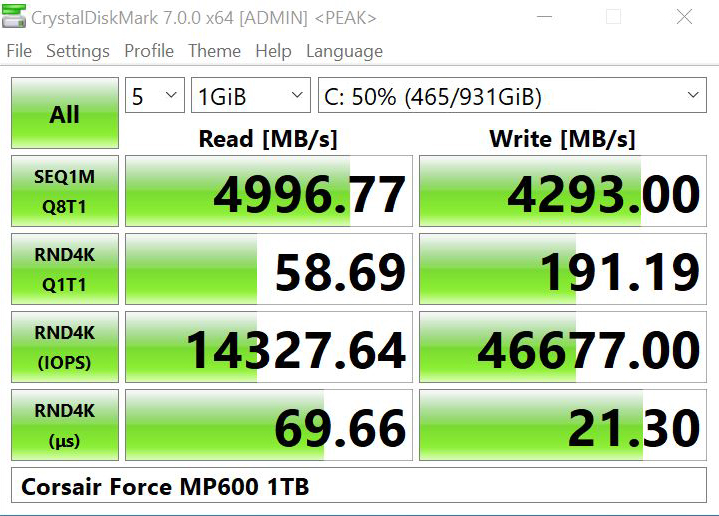
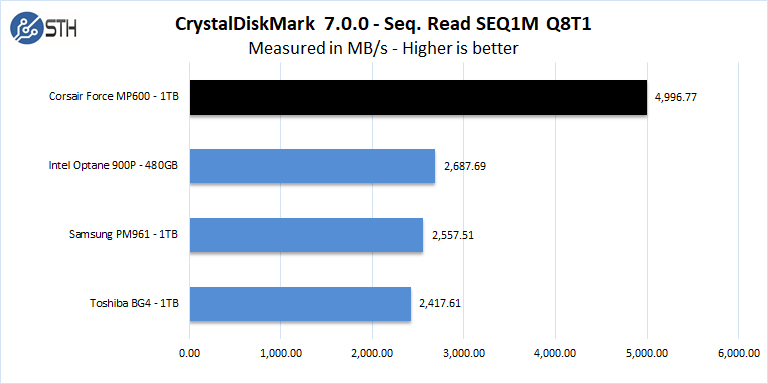
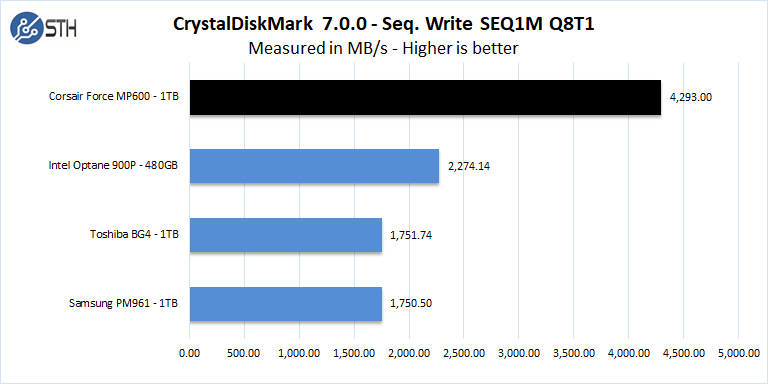
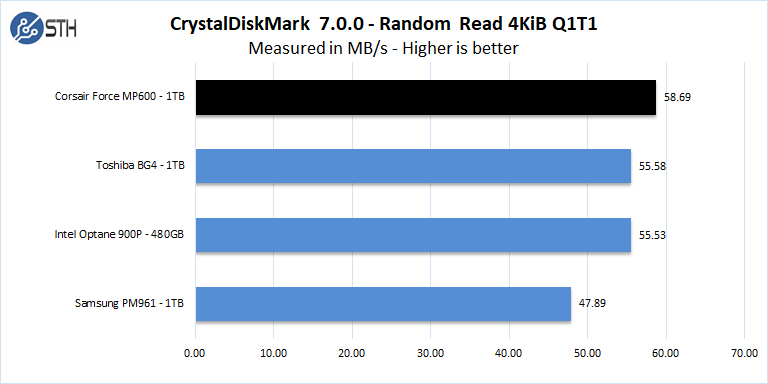
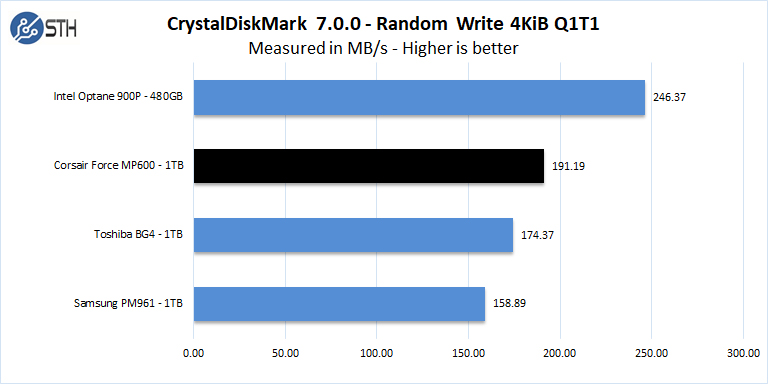
Overall we see a huge boost in performance over Gen 3 SSD’s, even over the Intel Optane 900P, which has been a top performer. The Corsair Force MP600 does drop in the Random Writes in 4KiB Q1T1 results where the Optane SSD shines.
ATTO v3.05 Disk Benchmark
The ATTO Disk Benchmark has been a staple of drive sequential performance testing for years.
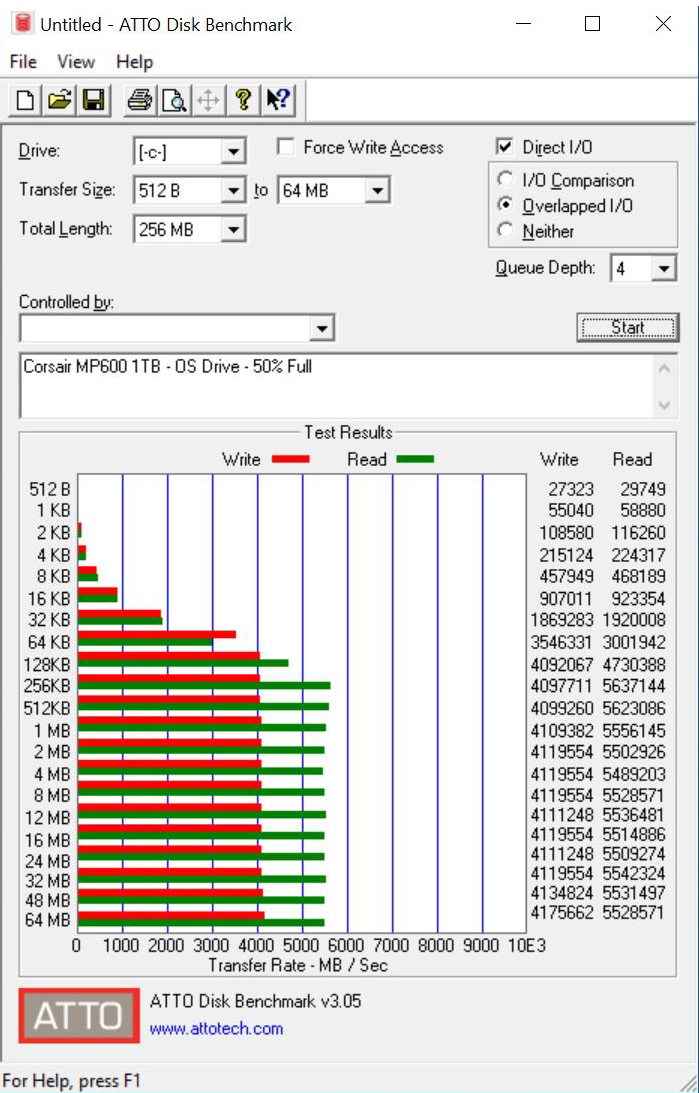
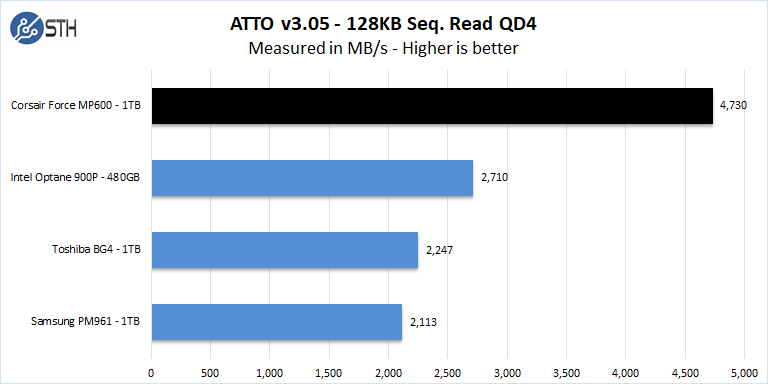
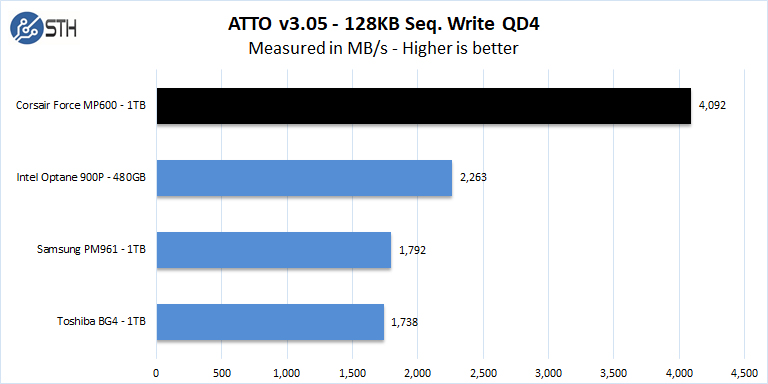
With ATTO, we see a huge performance leap over Gen3 SSD’s, at around twice the performance.
Continue with Anvil, AS SSD Benchmarks.

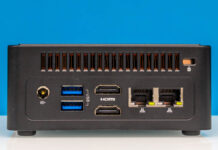

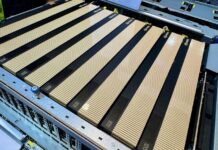
William, thanks for the review and also Merry Christmas.
However, looking at the results it occurs to me that what you (& other ssd/hdd testers) are actually measuring is the performance of the software tools. Example AS SSD tools says ~2000MB/s sequential read, and same page, Anvil Storage Utilities says ~4000MB/s sequential read.
Surely there is an objective reality underlying the test results, and that reality is located in the SSD. So we have a problem with the software I’d say.
Cheers!
Great review. Thank you for the early insight in to the new generation.
Given that sheer amount of speed and potentially in flight data, it would be helpful to understand the impact of power loss on these newer drives.
Here there are no hold up capacitors, but perhaps there are some firmware mitigations to ensure consistency. Or maybe not?
Perhaps an opportunity to combine with some updated ZFS testing.
emerth: Look at the SPEC benchmark results instead if you don’t like (understandably so) the pure synthetic benches.
The most relevent for desktop performance numbers from the synthetic tests to me are the ones that show the random read/write numbers for low (QD4 or less) queue depths.
I discovered this website while looking for that SSD review.
I’m bluffed by the quality and the accessibility of that review, I’m not an export but I got the main points and from what I’ve seen even for expert this is very complete.
Cheers. I’ll be checking more of your website. Indeed, I expect good given this review.